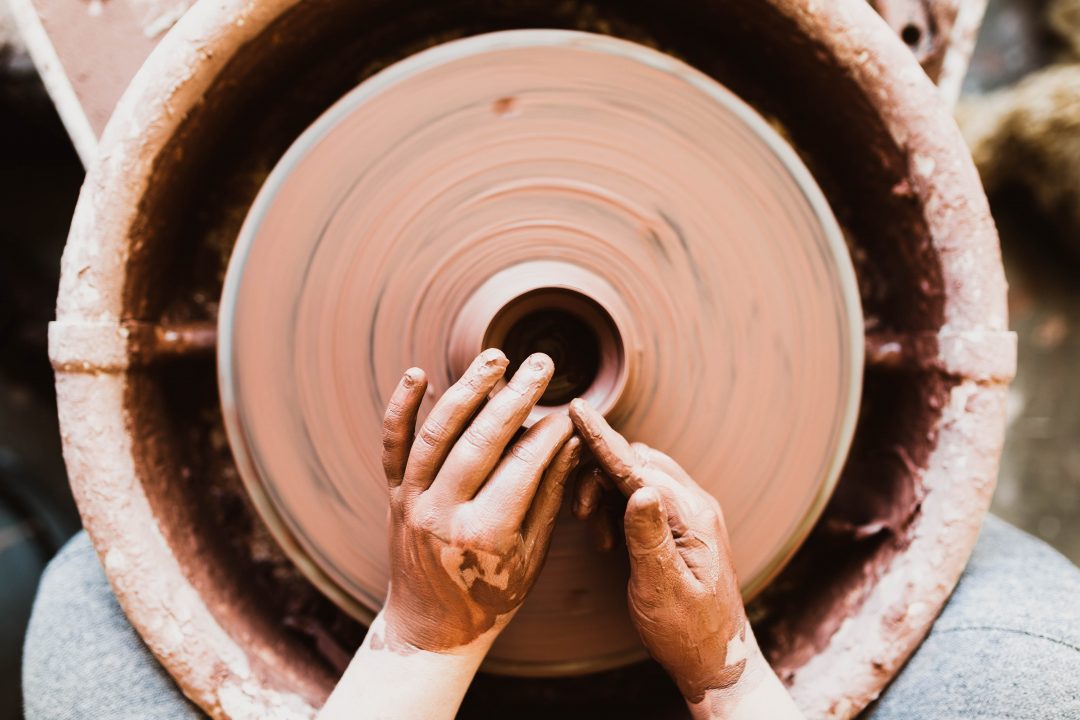
At Craftiosity, we’re firm advocates of crafting as a tool for mindfulness and good mental health. When you set yourself a project to create, be it crafting, cooking, music – or any creative process – the process of making is often as important as your creation.
While you may not actively think of your creation as being good for your mental health, here’s a few things to consider…

“It’s that tactile and physical nature of craft, keeping the mind and senses fully occupied.”
Embracing Our Senses
The whole key to mindfulness is ‘being in the moment’. That’s often easier said than done when you have things to do, thoughts and worries flying through your head in any given moment. But at it’s core, it’s really all about using, enjoying and embracing our senses, as they’re always in the present.
That’s why craft is such a wonderful way to achieve mindfulness, as you aren’t consciously trying to reach that state – it’s just a natural result of doing something enjoyable!
By making good use of our hands, eyes, nose, ears – even sometimes mouth – when making and crafting, we’re submitting to that ever-important moment and embracing ‘the now’.
When you’re in the midst of a project do you ever feel like time stands still and you’re in your own little bubble? It’s all down to that tactile and physical nature of craft, keeping the mind and senses fully occupied.

“Technology makes us impatient and impatience is the opposite to mindfulness.”
Setting Aside Technology
Whenever we’re on our phones, laptops or watching tv, we’re automatically transported somewhere else, existing in two places at once. We’re still physically in the room, but we’re also in a virtual world and our mind is away elsewhere.
Technology makes us impatient and impatience is the opposite to mindfulness. The world is right at our fingertips; we’ve become reliant on the internet for work, social events and general entertainment (funny cat videos anyone?!), but we need some time away, to strip it all back and set our phones and laptops aside.
When we’re crafting or making something we have to embrace the time it takes and each step of the process; it forces us to slow down and pay attention to what’s around us.

“Build yourself a creative space to enjoy and to inspire new projects.”
A Space to Create
The environment that surrounds us plays an important part in getting our creativity flowing.
Clearing the clutter, having your craft supplies easily to hand and surrounding yourself with plants are some of our favourite ways to boost wellbeing (read our recent article for more information on our green leafy friends and their benefits).
Why not build yourself a creative space to enjoy and to inspire new projects?
If you can set up a desk space or small area in a room to dedicate to your creative projects (a technology-free zone), it’ll become a relaxing space; somewhere to wind-down after a long day or re-energise for a new one!

“Slow-stitching values both the meditative and repetitive quality of the craft.”
The Slow-Stitching Movement
Slow-stitching, and slow-living generally, have become popular concepts in recent years. Slow-fashion and slow-cities look to value our environment and consume less, whilst slow-stitch techniques like Indian Kantha and Japanese Sashiko embrace craft as a mindful, therapeutic and reflective process.
There’s a really lovely book called Slow Stitich: Mindful and Contemplative Textile Art by Claire Wellesley-Smith that we recommend if you fancy learning more.
So there you have it, all you need to know about crafting your way to mindfulness! Now, which project should we start first…
This post includes a referral link, but we only mention the book because we genuinely like it!











